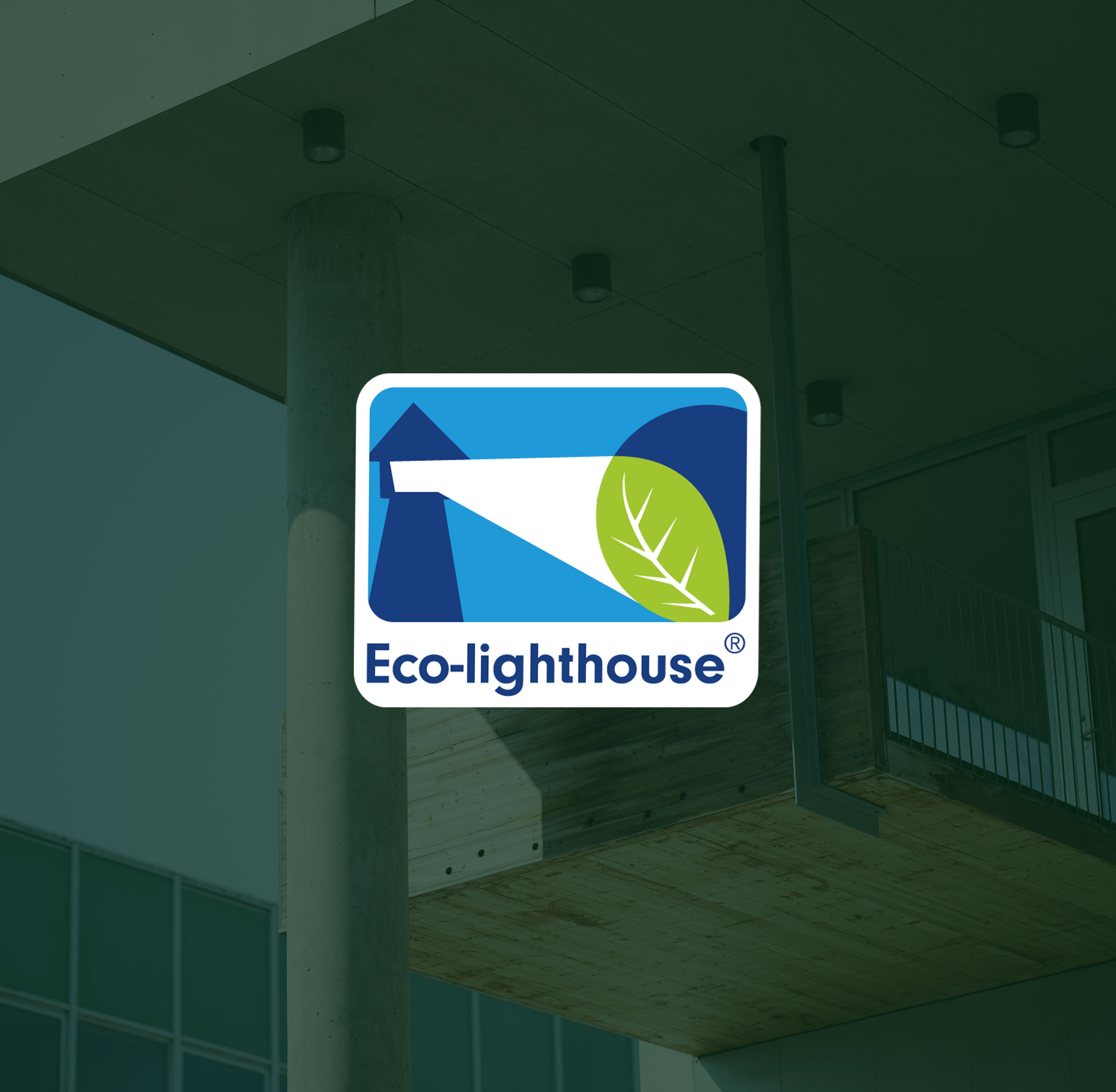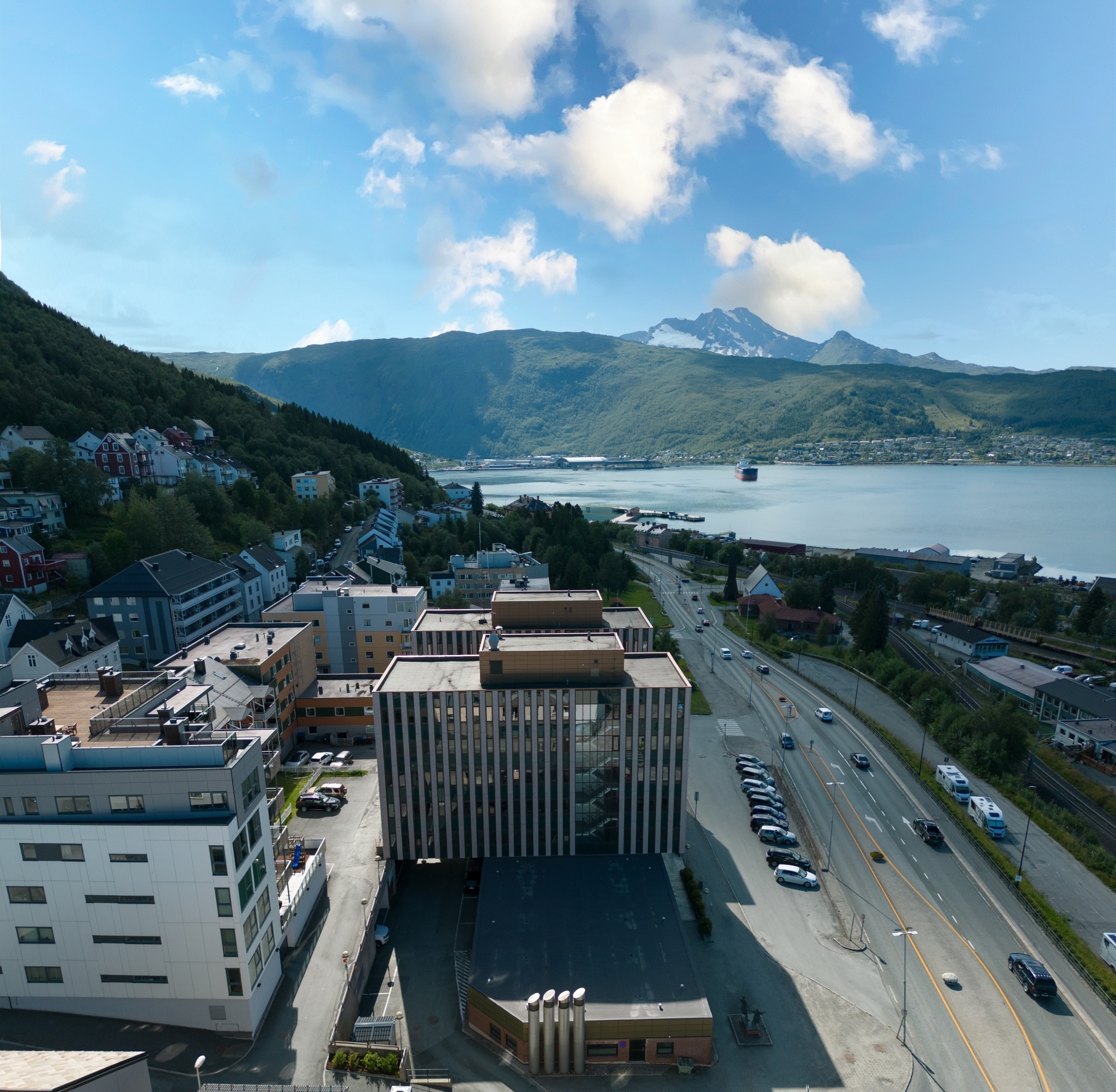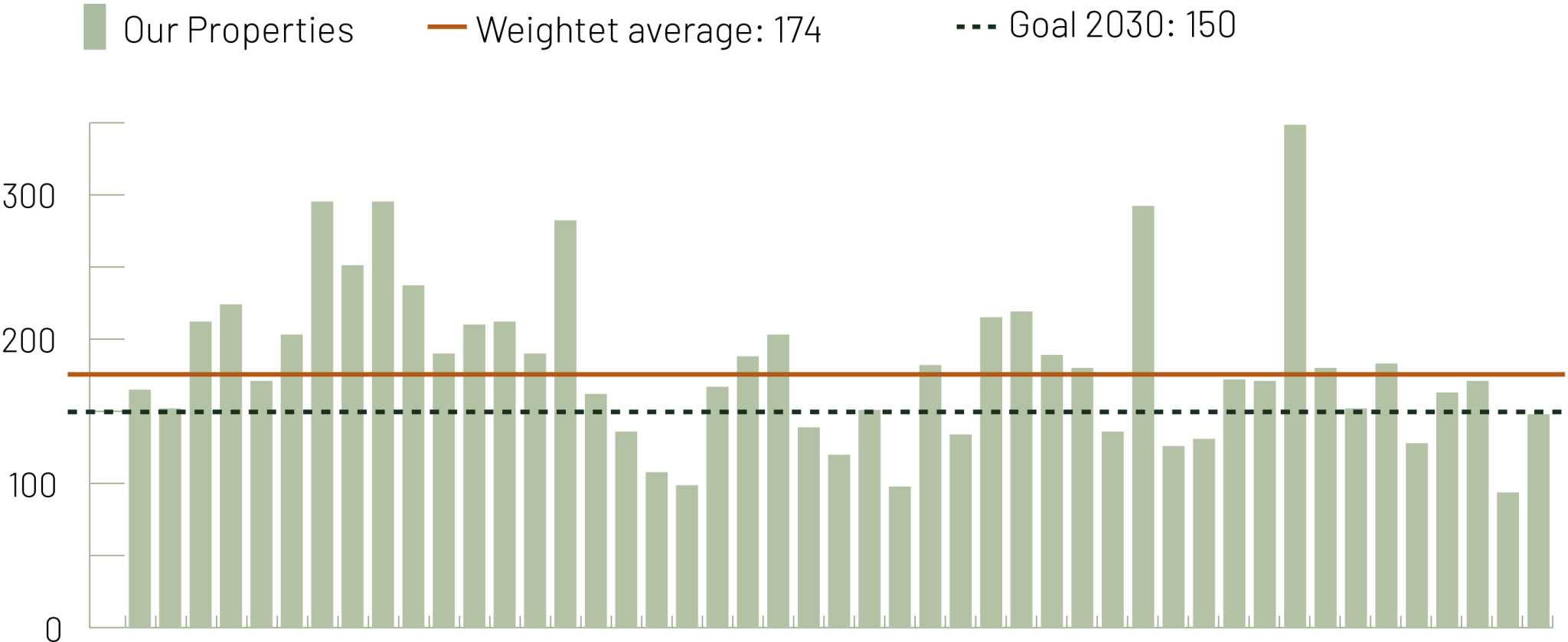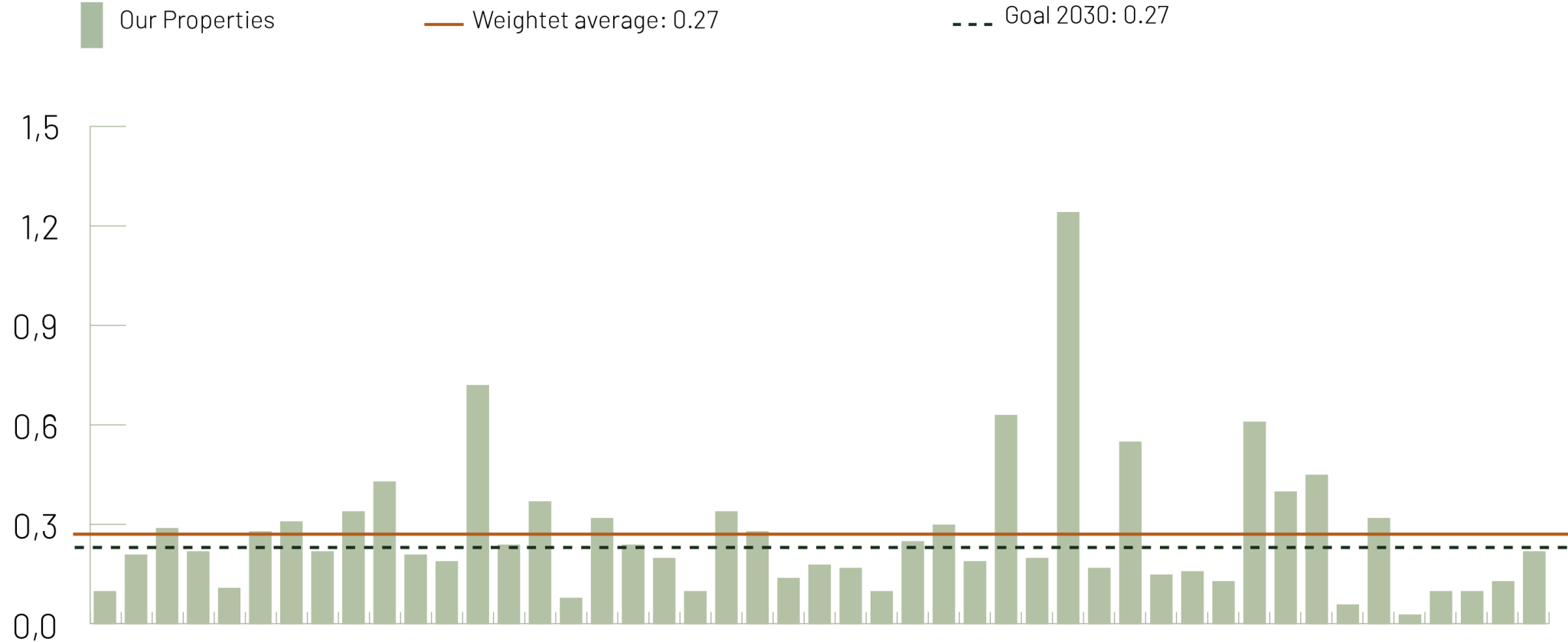
Climate and environment
Within the area of climate and environment, PPI has set a goal of all of its buildings being environmentally certified according to the group’s sustainability strategy. The company was certified as an Eco-Lighthouse by the Eco-Lighthouse Foundation in December 2023. The group aims to map energy consumption, water consumption and waste-sorting in all its buildings annually and continuously evaluating its progress in reducing such consumptions for each building. PPI uses an energy management system which automatically gathers data from electric, district heating and cooling meters to monitor these factors to establish the current status and progress. The results are used to prepare an environmental strategy for each individual building, enables efficient management and usage, and prompt identification of any operational errors related to the asset’s technical equipment. External consultants are hired to establish which actions will produce the most sustainable solutions, as well as the best results in the short term. An overview of the group’s properties’ energy consumption is reflected in the illustration below.
Social sustainability
Within the area of social sustainability, the group focuses diligently on ensuring good working conditions for its own as well as its partners’ employees. PPI aims for its buildings to be located at places satisfactory to its tenants, and ensures that the buildings are designed to be attractive and accessible to everyone regardless of their needs, and provide high-quality and health solutions in addition to high usability.
The group acilitates user involvement and participation during the tenancy, and finds optimal solutions in close collaboration with each tenant. Furthermore, to comply with the Norwegian Transparency Act, the group has established a channel for whistleblowing and a code of conduct for all its partners. Within financial sustainability, the group focuses on its buildings functioning as a strategic tool for its tenants. The group designs and tailors its buildings to serve as a tool to help its working tenants fulfil their social mandates.
The group acilitates user involvement and participation during the tenancy, and finds optimal solutions in close collaboration with each tenant. Furthermore, to comply with the Norwegian Transparency Act, the group has established a channel for whistleblowing and a code of conduct for all its partners. Within financial sustainability, the group focuses on its buildings functioning as a strategic tool for its tenants. The group designs and tailors its buildings to serve as a tool to help its working tenants fulfil their social mandates.


